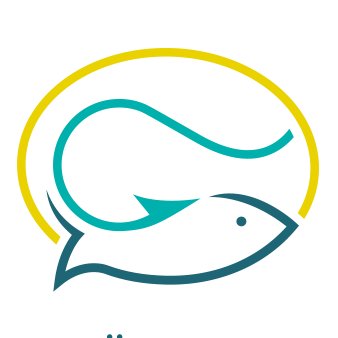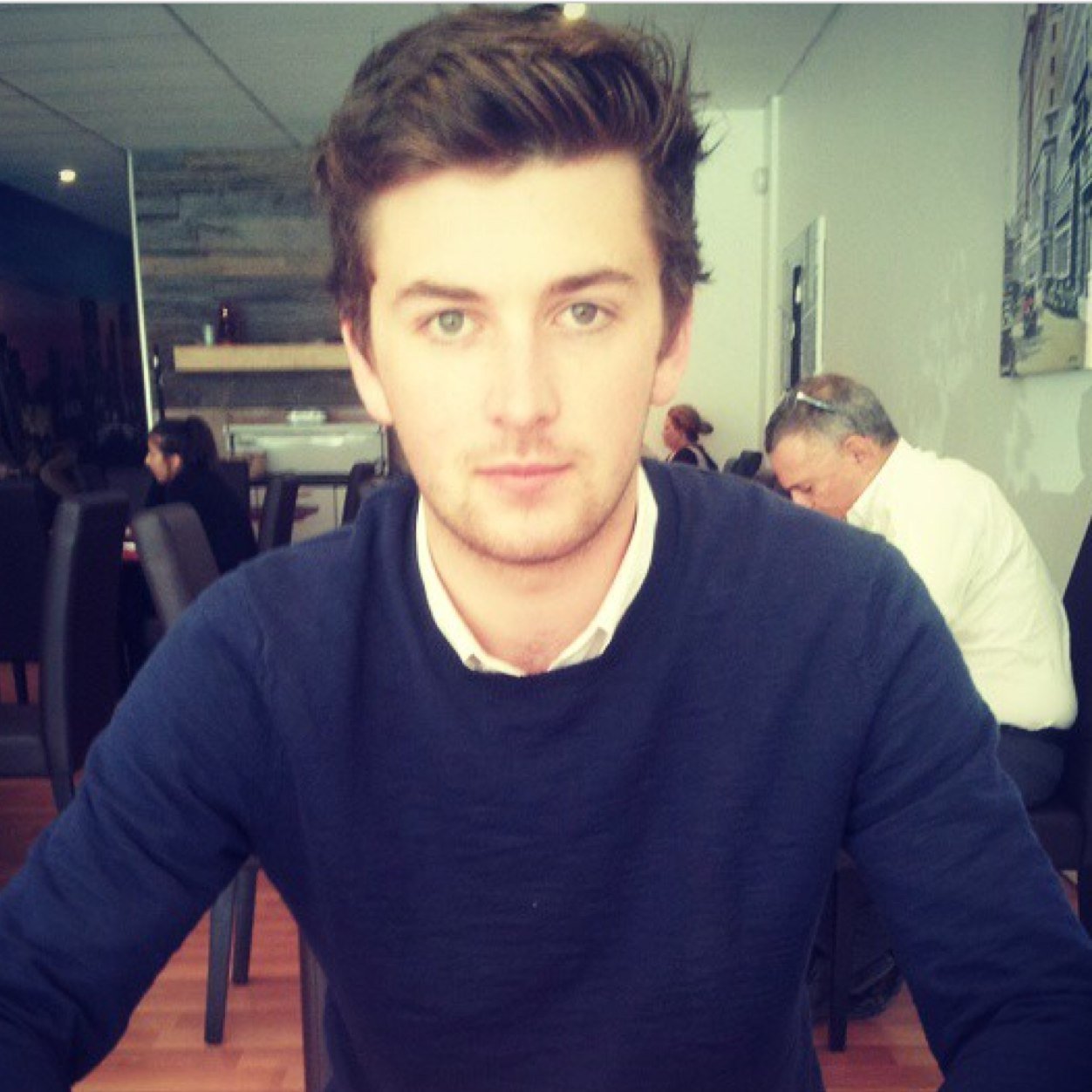
Robert Arlinghaus
@RArlinghausFish
Followers
3,898
Following
1,401
Media
1,015
Statuses
13,393
I like fish + fishing, study both as professor of fisheries. Editor Fish Fish. + Z. Fischerei. Private account/tweets, RT does not mean endorsement.
Berlin, Deutschland
Joined May 2014
Don't wanna be here?
Send us removal request.
Explore trending content on Musk Viewer
#Orm1stFMNanning
• 441048 Tweets
ORM HEARTBEAT UNSTOPPABLE
• 428877 Tweets
Cardi B
• 116810 Tweets
गोवर्धन पूजा
• 77354 Tweets
#Xフライドポテト20周年祭
• 46225 Tweets
Ron Paul
• 39745 Tweets
#YINWAR1STFANMEETING
• 33342 Tweets
雨天中止
• 24821 Tweets
Braun
• 24123 Tweets
#アルビレックス新潟
• 21703 Tweets
大雨警報
• 21228 Tweets
グランパス
• 20269 Tweets
京王杯2歳
• 20239 Tweets
土砂降り
• 17474 Tweets
日本シリーズ中止
• 16097 Tweets
Gobert
• 15798 Tweets
ファンタジーS
• 13919 Tweets
東海道新幹線
• 13630 Tweets
ピクミン
• 12536 Tweets
#ルヴァンカップ決勝
• 12529 Tweets
Jokic
• 10561 Tweets
Last Seen Profiles
Pinned Tweet
Does the experience of killing animals in
#hunting
and
#fishing
/
#angling
produce the best environmental stewards? We present arguments pro and against this controversy in
@naturesustainab
Led by Sam Shepard
@InlandFisherIE
with
@EricavonE
and others.
2
28
46
I am a tenured fisheries professor at a German research institution. My job is mostly a dream job (see separate thread), but some things are super frustrating in
#academiclife
in Germany. Here is list of agony. A thread.
12
37
307
Revolution in high resolution tracking of fish and wildlife. In our new study in
@ScienceMagazine
led by
@ran_nathan
we summarize the field and provide an outlook into the future of movement ecology
@ScienceMagazine
4
79
247
Adding habitats beats adding fish. Outcomes of your massive replicated whole lake experimentation in fish conservation is now out in
@ScienceMagazine
So proud of my team and
@RadingerJ
as lead author. 120 lake-years, 150,000 fish + dozen of angling clubs.
13
51
171
A look underwater. 7 days in the life of a wild carp population in cold water in November 2015. I thought warmwater fish rest in cold water? They do quite the opposite.
@LeibnizIGB
@HumboldtUni
17
87
153
And I am the first author in that paper. Shit.
@SMWadgymar
We had "fluid shits" rather than "fluid shifts" make it past 4 co-authors, an editor, handling editor, 3 referees and technical editor and into a respected peer reviewed journal. I guess shit happens... ;)
7
12
129
2
7
142
Want to see what different freshwater fish do 24/7 in a natural lake? And whether they show social behaviour within or among species (carp, catfish, tench, perch)? Then our new paper in
@RSocPublishing
is for you, with
@MonkCT
2
41
133
Time to retire. Our
@PNASNews
study on selection of timid pike by
@MonkCT
made it into a quizz in a prime TV show in Germany. Fisheries-induced timidity goes public!
@tv_elton
did you get the answer right? If not, let me know.
@HumboldtUni
@LeibnizIGB
@dfg_public
@BMBF_Bund
6
15
132
I can happily announce I will be joining Fish and Fisheries
@wileyecology
as co-editor as of November, 1, to help shape the future of this journal in a great team of co-editors with Gary Carvalho and Paul Hart.
5
7
126
Publishing a
@ScienceMagazine
paper with perch and roach, not sharks, whales and tuna. I like it.
2
11
104
A visual of our new
@CJFAS
paper on perch (blueish) - angler (yellow-greenish) interactions. Note how rarely encounters happen (and not when the research team calls for lunch). Ultimate capture is not about encounters but rather a skill effect of lure use.
3
55
98
Ok. What shall I say?
#seaspiracy
achieved a miracle. All fisheries heros united to combat misformation. I can retire in piece and go fishing for the rest of my live, saying thanks.
2
6
81
Bildungsweltmeister Deutschland. Exzellenzuni
@HumboldtUni
. Das ist da, wo der Professor mit eigener Leinwand, eigenem Beamer, eigenen w LAN Hospot den Vorlesungsraum überhaupt vorlesungsfähig gestalten muss. Passiert beim Thaer Institut. Irgendwie nicht akzeptabel
@LeibnizIGB
7
3
79
In our new paper in PNAS (Post Nature and Science) we show that assuming egg numbers scale in proportion to body mass (isometry) may lead to systematic overfishing because in reality hyperallometry in fecundity is common.
@LeibnizIGB
@HumboldtUni
@djm_MEEG
@MarcMangel1
@PNASNews
0
23
72
Please RT: Do you want to join the IFishMan lab ()
@LeibnizIGB
in Berlin either as postdoc or PhD studying the spatial ecology of northern pike in Baltic Sea around Rügen using telemetry and other tools? Then please apply here:
2
85
72
You know which little detail makes me smile and also proud? That the shape of our small 25-ha research lake (and a pike) made its way into a review on movement ecology that is in
@ScienceMagazine
this week
#smallvictory
#happyPI
@MonkCT
@ThomasKlefoth
1
7
66
I am a tenured fisheries professor. My experience is mostly from Germany. Here is what I like about
#academiclife
and
#academia
. A thread
1
4
63
@Dr_Oakleaf
@RittwegTimo
@ulfochhavet
Yes. The story is complex. We also have other threats like freshwater access blocked, dikes, altered food web, less hering, rising predators, fisheries, including local variation, eutrophication, warming winters ....
0
0
1
Sustainable fisheries needs considering recreational fisheries. We present five necessary steps for policy reform in
@PNASNews
with
@FreshwaterSteve
@SJC_fishy
@hilbornr
@josep_alos
@RU_Fisheries
@EliFenichel
@ThomasKlefoth
@LeibnizIGB
@HumboldtUni
0
30
61
Check this out - how wels catfish and perch rock the lake reality. Check the diurnality out. From the IFishMan fish telemetry project at a whole-lake scale.
@LeibnizIGB
@HumboldtUni
@ulfaslak
1
12
60
Our IFishMan lab received a recognition for excellence in inter- and transdiscipinary by
@CircleU_eu
today for fisheries. Thanks for all the support over the years and our superb team!
@HumboldtUni
@LeibnizIGB
@BMBF_Bund
@IRI_THESys
5
10
56
I have just received remotely this award of excellence in public outreach by
@AmFisheriesSoc
. So proud and honored. Cannot personally attend
#AFS148
as I am given outreach talk tomorrow to German fisheries stakeholders. THANKS.
4
3
55
New in
@sciencemagazine
: Big fish contribute heavily to total egg production and should be protected more. We have been saying this in the context of pike and other freshwater fish management since 2010 assuming exactly the now shown mechanisms.
1
31
54
In our new paper led by
@FisheriesRobert
we provide a summary for how to apply telemetry to study fish. A big joint achievement of many in the field that started at the
@FishTelGroup
. With many co-authors such as
@josep_alos
@SJC_fishy
@DrBrodin
and more
0
29
55
Always the best moments.
@matern_sven
defends his PhD thesis in fisheries ecology
@HumboldtUni
and
@LeibnizIGB
. I wish you all the best in your next steps. Yours
#proudsupervisor
1
4
55
Let the big fish swim again - in our new paper led by
@djm_MEEG
just out in
@PNASNews
we show for 32 capture fisheries that saving a greater proportion of large fish from harvest maybe a good idea. With
@MarcMangel1
1
23
55
Unglaubliche Ehre: Ich habe gerade den Communicator Award 2020 von der Deutschen Forschungsgemeinschaft bekommen, Sonderpreis an Christian Drosten
@c_drosten
@dfg_public
@HumboldtUni
@LeibnizIGB
@LeibnizWGL
Danke an ganzes Team für herausragende Arbeit!
6
6
54
Stay tuned. New paper accepted at Transactions of the American Fisheries Society by
@AFS_President
showing that common carp are able to develop hook avoidance after being hooked and released (private learning) and also after just observing others being hooked (social learning).
1
8
53
Stakeholder wisdom: our new paper in
@naturesustainab
led by
@PAminpour
shows a bunch of anglers can approximate the best scientific understanding of the ecology of an exploited fish species, if you do the aggregation of the collective intelligence right.
3
27
50
Happy new year starts with 7 days of high resolution underwater carp behaviour in January 2015 in a 25 ha natural lake (max 8 m, 3 m around the numbered dots). Conditions - no ice, lake is shown in northern direction. Still no sign of slow winter movements.
@DirkBrockmann
5
13
52
In March we published a paper in
@ScienceMagazine
on the performance of habitat management vs. stocking led by
@RadingerJ
. I bought five printed issues as a memory. Online interest was high > 10.000 downloads, altmetric score > 900. New record for me. Thanks for interest. Wine!
2
1
47
Carp can avoid being hooked simply by observing others (called social learning) our new study published open access in
@AmFisheriesSoc
shows. With
@SJC_fishy
1
13
47
We are filling two tenure track jobs
@LeibnizIGB
in fish
#movement
ecology and fish
#ecophysiology
. Please consider applying and spread the word to become our new colleagues in our fish and fisheries department in
#berlin
.
and
2
67
47
Honestly. This
#communicatoraward
still feels unreal. Academia is so much built on criticism and doubt. And
#impostersyndrome
. This recognition is super motivating to me. THANK YOU jury
@dfg_public
, funders
@BMBF_Bund
and team!
@HumboldtUni
and
@LeibnizIGB
websites still smiling.
2
1
47
What a flash back. 1999. I wasnt a faculty, but an intern doing aquaculture stuff in Baton Rouge Louisiana
@LSU
. Then I found the book Angler Survey Methods by Ken Pollock et al. 1994 in local library. What??? One can do science on angling? Lets do that instead back in Germany.
2
0
42
I re-read this paper by
@KatjaEnberg
and others, and I have to conclude again this is absolute excellence in scientific writing. This is how one should write, I think, narrative conceptual reviews. Congratulations for excellent work
1
9
43
Please RT: Seeking new postdoc in quantitative modelling to assess status of Baltic Sea pike at Rügen + identify management options with stakeholders. Please join our multidisciplinary Boddenpike IFishMan team in Berlin. Deadline Oct., 30.
@LeibnizIGB
1
56
42
Our river
#oder
#odra
fish sampling after
#fishkill
with students of
@HumboldtUni
revealed a decline in fish biomass by 75% for two site relative to average from 2010 to today. First before-after data for shoreline, but findings still preliminary.
@RadingerJ
1
10
39
Our latest paper on how translocated fish behave in high resolution in the wild.
0
5
40
We started a two week field course in fish sampling. First River Odra fish kill investigations! And contrasts to oxbow lakes.
@HumboldtUni
@LeibnizIGB
1
3
40
What makes recreational anglers happy? Our new meta-analysis led by PhD student
@birdsong_max
in Fish and Fisheries
@wileyecology
provides answers. Many things, but catch matters a lot, while the environmental quality is of less importance. Paper OA:
5
8
40
What a cool paper in
@ScienceMagazine
documenting substantial fish community shifts toward smaller bodies commlunities due to warming in the paleobiological record, including colleagues from
@GEOMAR_de
1
8
39
The best time of science, proof-reading. I love it. Especially for paper that is important and that took up a lot of energy and dedication. Great synthesis work by
@MalwinaSchafft
on recreation ecology to be published as environmental evidence in
@RSocPublishing
.
1
8
39
That makes us happy. After three rounds of revision a long-in-the-making paper led by
@MonkCT
on how translocated adult pike and catfish respond to being introduced to a novel lake is accepted in
@AnimalEcology
: Key finding - it is a challenge to establish, with fitness costs.
0
4
39
You simply cannot study stuff with implications for wild populations with domestic fishes. Period.
Does adaptation to stable temperatures lead to a loss of physiological plasticity?🌡
In our new paper
@PNASNews
we explore this by comparing lab (150+ generations in stable conditions) and wild (fluctuating temperatures in nature)
#zebrafish
🐟1/7
20
143
507
3
10
37
High resolution behaviour of a natural population of northern pike in a 25 ha lake. Blueish catchable by angling, red uncatchable by angling.
@LeibnizIGB
@HumboldtUni
@FVB_adlershof
@LeibnizWGL
1
15
35
Are anglers the best protectors of aquatic environments or an are they just selfish exploiters of nature? We review this controversial assumptions against a novel stewardship model in
@FishFishJournal
@jorg_freyhof
2
15
37
Further robust evidence that fish stocking often fails. Five species, replicated lakes, whole lake experiment, 6 years. Led by
@matern_sven
and
@RadingerJ
0
13
35
@dfg_public
@dieternuhr
Liebe
@dfg_public
. Grösse beweist sich darin, wie mit Fehlern und Konflikten umgegangen wird. Das Statement ist exzellent und die Lösung auch. Und wir alle haben etwas gelernt, eine wichtige Debatte ist angestoßen. Vielen Dank dafür!
0
1
35
Exciting! The IFishMan lab will get an award of exellence in inter- and transdisciplinary research awarded by
@CircleU_eu
- the European University Alliance of 9 leading universities in Europe. The ceremony will be November, 24, in Belgium. Champagne!
@HumboldtUni
@LeibnizIGB
4
3
36
Very proud and great feeling to hand in 35 out of 54 management recommendations with stakeholder agreement for Rügen pike to fishery ministry in MV. But why does team let me stand up looking like a drunk professor who does not have control about clothing? (C) Lindner
@DAFV_fish
2
0
37
"Angler porn" reaches next level. Now we visualize the high resolution behaviour of three top freshwater predators jointly (perch, catfish, pike) in a natural lake of 25 ha. Check it out. Which patterns do you see? Let's discuss.
@LeibnizIGB
@HumboldtUni
5
15
36
In stream salmonids, the catchability increases with declining local population size, leading to hyperstable catch rates. And catchability varies by species. Check our new work out from Japan led by Jun Tsuboi:
@cjfas
1
6
36
I am a Falling Walls Winner 2020, i.e., among the top ten science engagers internationally. Tune in to the
#GrandFinale
tomorrow to find out if my project is also the Breakthrough of the Year: Project video is here
2
5
36






















































































































